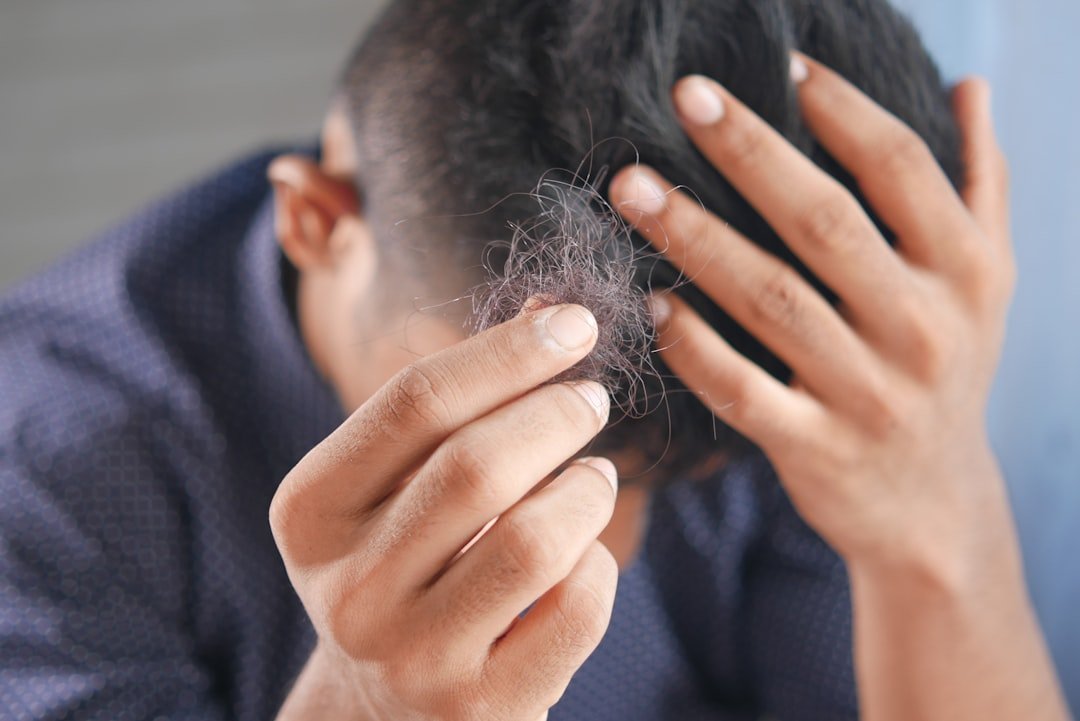Experiencing hair loss can be a daunting journey, influencing not only your appearance but also your emotional state in unforeseen ways. In this article, we will examine six significant effects of hair loss on mental health and provide helpful strategies for managing these challenges.

Anxiety
Hair loss frequently induces considerable anxiety. You may find yourself preoccupied with how others view you or anxious about the trajectory of your hair condition. This persistent worry can interfere with your daily life, making it difficult to concentrate at work or enjoy social outings. To manage these feelings, you might consider visiting absoluteimageconsulting.com, where you can explore hair replacement options that can help restore your self-assurance and lessen your anxiety surrounding hair loss.
Depression
The journey of losing hair can plunge individuals into feelings of profound sadness and despair that extend well beyond the physical aspect. Hair can symbolize a crucial part of one’s identity, representing self-expression and personal style. Consequently, losing it can feel like a deeper loss of control and stability, potentially giving rise to significant emotional struggles. Participating in social activities may become intimidating, leading to withdrawal and an increase in feelings of isolation due to embarrassment about one’s appearance.
This emotional burden can spiral into a state of depression, affecting various aspects of life, including interactions, work performance, and general happiness. Acknowledging these feelings is essential, as they are genuine and legitimate. Professional assistance, be it through counseling or support networks, can equip individuals with the necessary tools to navigate this challenging experience.
Moreover, building connections with friends and family who can provide understanding and support may prove crucial in managing the depressive effects of hair loss. Remember that you are not facing this challenge alone, and the journey toward healing and rediscovering joy is possible.
Self-Esteem Issues
The impact of hair loss on your self-esteem and self-worth can be quite pronounced, leading to a series of emotional difficulties. As your appearance changes, feeling less attractive and confident is a natural response. This can result in behaviors such as avoiding reflective surfaces, shying away from cameras, or hesitating to participate in public engagements. Such experiences can create a feedback loop, where diminished self-esteem exacerbates concerns about hair loss, further deteriorating your self-image.
It’s vital to understand that these perceptions are often distorted; your self-worth is not defined by your hair and extends beyond physical features. Engaging in activities that uplift your self-esteem—such as hobbies, physical exercise, or spending time with supportive friends—can aid in rebuilding your confidence. Exploring alternative hairstyles, trying wigs, or considering hair replacement options can also help you regain a sense of autonomy and comfort in your appearance. Keep in mind that the journey to enhancing your self-esteem may be gradual, but deliberate steps can lead to meaningful shifts in how you view yourself and relate to others.
Social Isolation

Concerns about judgment or embarrassment related to hair loss can lead individuals to retreat from social situations, fostering a cycle of loneliness. Worries about how others perceive your changing looks may lead to avoiding events, opting out of gatherings, or even declining invitations altogether.
Such avoidance often stems from fears of vulnerability or exposure regarding your appearance. Over time, this isolation can intensify, creating a sense of detachment from friends and loved ones. The absence of social support during this challenging time can amplify emotional strain, making it increasingly difficult to cope with the psychological challenges associated with hair loss. To combat these feelings of isolation, staying connected with family and friends who offer empathy and support is essential.
Body Image Concerns
The perception of body image can be profoundly influenced by hair loss. You might grapple with feelings of diminished attractiveness or struggle to embrace your new look. This shift in body image can sometimes lead to unhealthy behaviors, such as extreme diets or over-reliance on beauty products. Emphasizing your strengths and embracing self-love are crucial steps in fostering a more positive body image.
Impact on Professional Life
Your career can also be significantly affected by hair loss. The anxiety and self-esteem challenges that often accompany hair changes may diminish your confidence in professional settings, including meetings and presentations, which can impede your career advancement and opportunities. Participating in professional development and engaging in activities that relieve stress can help restore your confidence at work.
While hair loss can profoundly influence your mental health, recognizing these effects is the first step towards managing them. Whether it involves seeking professional help, exploring hair replacement options, or implementing self-care strategies, there are numerous paths to effectively addressing the emotional challenges of hair loss.




